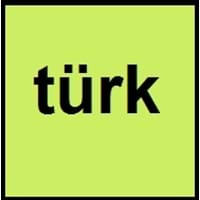Countries
Hong Kong, Macau
Azerbaijan, Bosnia, Bulgaria, Cyprus, Greece, Iraq, Kosovo, Macedonia, Northern Cyprus, Romania, Turkey
National Language
China, Guangdong
Turkey
Second Language
Not spoken in any of the countries
Not spoken in any of the countries
Speaking Continents
Asia
Asia, Europe
Minority Language
Hawaii
Bosnia and Herzegovina, Greece, Iraq, Kosovo, Macedonia, Romania
Regulated By
Civil Service Bureau, Government of Hong Kong, Official Language Division
Turkish Language Association
Interesting Facts
- Cantonese have lot of slangs, many of them include words that do not make sense at all and some also have English in them.
- Even though Cantonese and Mandarin are dialects of Chinese, Cantonese has 8 tones instead of Mandarin's 4.
- Turkish language oldest written records are found upon stone monuments in Central Asia, in Orhun, Yenisey and Talas regions.
- Turkish language was developed in the Middle East, streching all the way to Eastern Europe.
Similar To
Chinese Language
Azerbaijani Language
Derived From
Not Available
Not Available
Alphabets in
Cantonese-Alphabets.jpg#200
Turkish-Alphabets.jpg#200
Scripts
Chinese Characters and derivatives
Latin
Writing Direction
Left-To-Right, Horizontal, Top-To-Bottom
Left-To-Right, Horizontal
Thank You
谢谢
teşekkür ederim
How Are You?
你好吗?
Nasılsın?
Good Night
晚安
İyi Geceler
Good Evening
晚上好
İyi Akşamlar
Good Afternoon
下午好
Tünaydın
Good Morning
早上好
günaydın
I Love You
我爱你
Seni seviyorum
Excuse Me
原谅我
Afedersiniz
Dialect 1
Guangzhou
Azerbaijani Turkish
Where They Speak
outside mainland China
Azerbaijan, Georgia, Iran, Iraq, Russia, Syria, Turkey
How Many People Speak
Not Available
Dialect 2
Xiguan
Crimean Turkish
Where They Speak
Hong Kong
Bulgaria, Kyrgyzstan, Romania, Russia, Turkey, Ukraine, Uzbekistan
How Many People Speak
Not Available
Dialect 3
Hong Kong
Gagauz
Where They Speak
Hong Kong
Moldova, Russia, Turkey, Ukraine
How Many People Speak
Not Available
Second Language Speakers
Not Available
Native Name
Kwang Tung Wa
Türkçe
Alternative Names
Guangfu, Metropolitan Cantonese
Anatolian, Türkisch
French Name
Not Available
turc
German Name
Not Available
Türkisch
Pronunciation
Not Available
[ˈtyɾct͡ʃɛ]
Ethnicity
Not Available
Turkish
Origin
17th century
c. 1350
Language Family
Sino-Tibetan Family
Turkic Family
Subgroup
Not Available
Turkic
Branch
Not Available
Southwestern(Oghuz)
Early Forms
No early forms
Old Anatalian Turkish, Ottoman Turkish and Turkish
Standard Forms
Standard Cantonese
Ottoman Turkish(defunct)
Language Position
Not Available
Signed Forms
Not Available
Turkish Sign Language
Scope
Not Available
Individual
ISO 639 1
No data available
tr
ISO 639 2/T
Not Available
tur
ISO 639 2/B
Not Available
tur
ISO 639 3
No data available
tur
ISO 639 6
Not Available
Not Available
Glottocode
cant1236
nucl1301
Linguasphere
No data available
44-AAB-a
Language Type
Not Available
Living
Language Linguistic Typology
Not Available
Subject-Object-Verb
Language Morphological Typology
Not Available
Synthetic
All Cantonese and Turkish Dialects
Most languages have dialects where each dialect differ from other dialect with respect to grammar and vocabulary. Here you will get to know all Cantonese and Turkish dialects. Various dialects of Cantonese and Turkish language differ in their pronunciations and words. Dialects of Cantonese are spoken in different Cantonese Speaking Countries whereas Turkish Dialects are spoken in different Turkish speaking countries. Also the number of people speaking Cantonese vs Turkish Dialects varies from few thousands to many millions. Some of the Cantonese dialects include: Guangzhou, Xiguan. Turkish dialects include: Azerbaijani Turkish , Crimean Turkish. Also learn about dialects in South American Languages and North American Languages.
Cantonese and Turkish Speaking population
Cantonese and Turkish speaking population is one of the factors based on which Cantonese and Turkish languages can be compared. The total count of Cantonese and Turkish Speaking population in percentage is also given. The percentage of people speaking Cantonese language is 16.00 % whereas the percentage of people speaking Turkish language is 0.95 %. When we compare the speaking population of any two languages we get to know which of two languages is more popular. Find more details about how many people speak Cantonese and Turkish on Cantonese vs Turkish where you will get native speakers, speaking population in percentage and native names.
Cantonese and Turkish Language Codes
Cantonese and Turkish language codes are used in those applications where using language names are tedious. Cantonese and Turkish Language Codes include all the international language codes, glottocodes and linguasphere.





